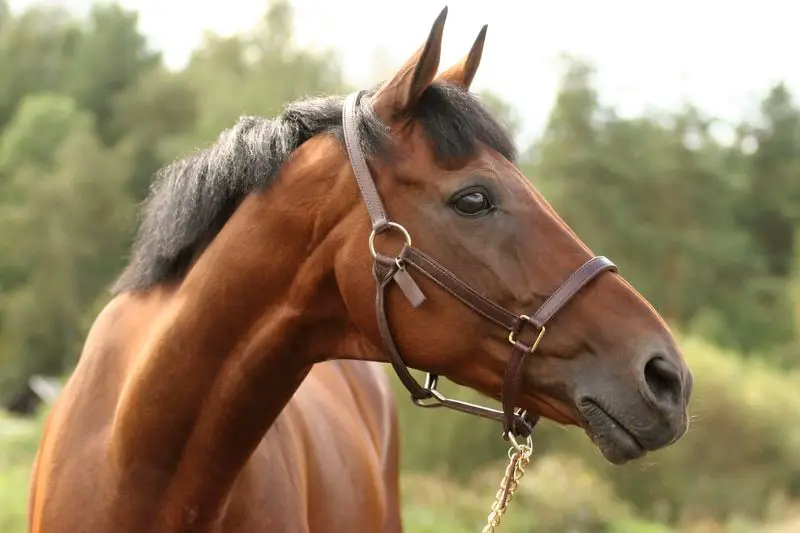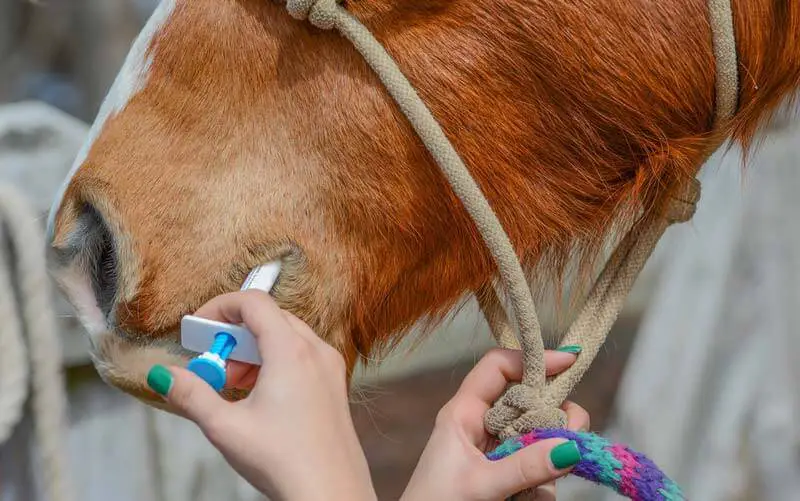I often get asked the question: “How old is too old for a horse to be ridden?” It’s a valid concern for any horse owner or rider, as the well-being of the animal should always be a top priority. In this article, I will explore this topic and provide some insight into what factors to consider when determining if a horse is too old to be ridden.

Table of Contents
First and foremost, it’s important to understand that there is no set age at which a horse becomes too old to ride. The answer to this question depends on a variety of factors, including the horse’s breed, overall health, and level of training. For example, a well-trained and healthy 20-year-old horse may still be able to handle light riding, while a 15-year-old horse with health issues may not be able to handle any riding at all.
Ultimately, the decision of whether or not to ride an older horse should be made on a case-by-case basis, taking into account the individual horse’s physical and mental condition. By consulting with a veterinarian and paying close attention to the horse’s behavior and responses to riding, you can make an informed decision about whether or not it’s appropriate to continue riding an older horse.
How Old is Too Old for a Horse to be Ridden? Factors to Consider!
As a horse owner, I understand the importance of ensuring that my horse is healthy and comfortable. When it comes to riding an older horse, there are several factors that I take into consideration. Here are a few things to keep in mind:
Age of the Horse
Age is an important factor to consider when deciding if a horse is too old to ride. While there is no set age at which a horse becomes too old to ride, it is generally recommended that horses over the age of 20 be retired from regular riding. This is because older horses may have a harder time recovering from injuries and may be more prone to health issues such as arthritis.
Breed and Size of the Horse
The breed and size of the horse can also play a role in determining if a horse is too old to ride. Generally speaking, smaller breeds tend to have longer lifespans and may be able to continue riding into their 20s and even 30s. Larger breeds, on the other hand, may have a shorter lifespan and may need to be retired from riding at a younger age. It’s important to consider the individual horse’s breed and size when making this decision.
Health and Condition of the Horse
The health and condition of the horse should also be taken into consideration. A horse that is in good health and condition may be able to continue riding well into its senior years. However, if a horse has a chronic health condition or is in poor condition, it may be best to retire the horse from riding to prevent further injury or health issues.
Overall, it’s important to take a holistic approach when deciding if a horse is too old to ride. By considering factors such as age, breed and size, and health and condition, you can make an informed decision that is best for your horse’s well-being.
Signs of Aging in Horses
As a horse owner, I know that horses age just like humans do. They may not show their age as much as humans, but there are still signs to watch out for. Here are some physical and behavioral signs of aging in horses that I have observed over the years.
Physical Signs
As horses age, they tend to lose muscle mass and their coat may become dull. Here are some physical signs of aging in horses:
- Loss of muscle mass
- Dull coat
- Decreased flexibility
- Weight loss or gain
- Difficulty maintaining body condition
- Decreased vision or hearing
- Decreased mobility
Behavioral Signs
In addition to physical signs, there are also behavioral signs of aging in horses. These signs may include:
- Decreased energy levels
- Increased napping or sleeping
- Decreased interest in activities
- Decreased appetite
- Increased irritability or aggression
- Decreased response to commands
- Increased anxiety or nervousness
It’s important to note that not all horses will show these signs of aging at the same time or to the same degree. However, as a horse owner, it’s important to be aware of these signs and to monitor your horse’s health and behavior regularly.
Risks of Riding an Old Horse
Joint and Muscle Problems
I have seen firsthand that older horses are more prone to joint and muscle problems. These issues can be attributed to the natural aging process, which causes a decrease in cartilage and joint fluid production, leading to arthritis and other degenerative conditions. Riding an older horse with joint or muscle problems can cause pain and discomfort, making it difficult for them to move comfortably. This can result in a decreased quality of life for the horse and a less enjoyable riding experience for the rider.
Digestive Issues
Older horses are also more susceptible to digestive problems, such as colic and impaction. This is because their digestive system becomes less efficient with age, making it harder for them to digest food and absorb nutrients. Riding an older horse with digestive issues can exacerbate these problems, leading to discomfort and pain for the horse. It is important to monitor an older horse’s diet and ensure they are receiving the proper nutrients and supplements to maintain their digestive health.
Respiratory Problems
Another risk of riding an older horse is the potential for respiratory problems. As horses age, their lungs become less elastic, making it harder for them to breathe deeply. This can lead to coughing, wheezing, and other respiratory issues. Riding an older horse with respiratory problems can cause further stress on their lungs, exacerbating the issue and potentially leading to more serious health problems.
Overall, while it is possible to ride an older horse, it is important to be aware of the potential risks and take steps to minimize them. This includes monitoring the horse’s health and well-being, providing proper nutrition and supplements, and adjusting riding routines to accommodate any joint, muscle, digestive, or respiratory issues that may arise.
Alternatives to Riding
Groundwork and Liberty Training
When a horse is no longer able to be ridden, groundwork and liberty training can be a great alternative. These methods involve working with the horse on the ground, teaching them to respond to cues and commands without the use of a rider. Groundwork can include lunging, long-lining, and other exercises that help keep the horse fit and engaged. Liberty training involves working with the horse in a round pen or other enclosed area, allowing them to move freely while still responding to the trainer’s cues.
Light Exercise and Turnout
Another alternative to riding is to provide the horse with light exercise and turnout. This can include hand-walking, ponying (leading one horse while riding another), or allowing the horse to move freely in a pasture or paddock. Providing regular turnout and exercise can help keep the horse healthy and happy, while avoiding the stress and strain of being ridden.
Retirement
Finally, retirement is always an option for horses that are no longer able to be ridden. This can involve providing the horse with a comfortable and safe living space, regular veterinary care, and plenty of social interaction with other horses. While retirement may not be the most exciting option for the horse, it can be the best choice for their overall health and well-being.
Conclusion
Based on my research and experience, I believe that there is no set age at which a horse is too old to be ridden. Each horse is an individual and should be evaluated on a case-by-case basis. Factors such as overall health, soundness, and fitness level should be taken into consideration when determining if a horse is able to continue being ridden.
It is important to note that older horses may require more specialized care and attention, including regular veterinary check-ups, proper nutrition, and appropriate exercise. Owners should also be aware of any signs of discomfort or pain, and should work closely with their veterinarian to ensure their horse’s well-being.
While some horses may need to retire from riding earlier than others, many horses are able to continue being ridden well into their senior years. With proper care and attention, older horses can still enjoy a fulfilling life and provide their owners with many years of companionship and enjoyment.



